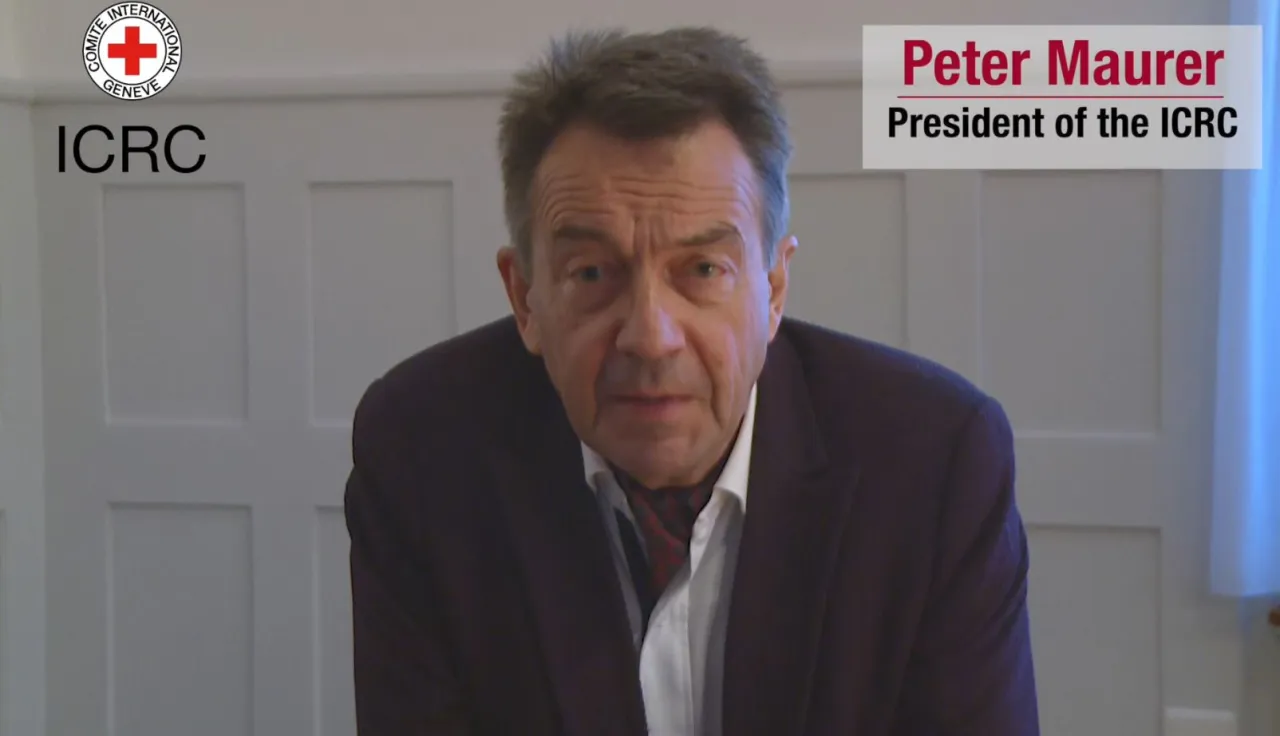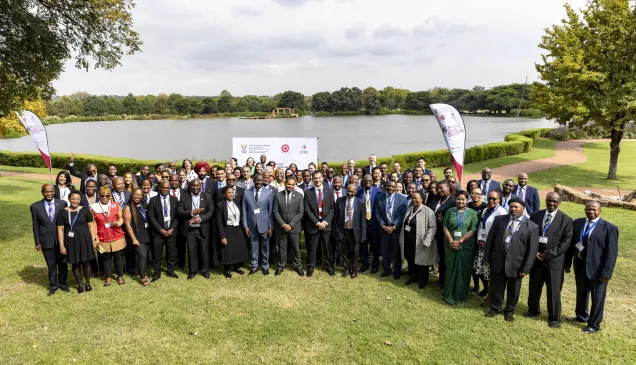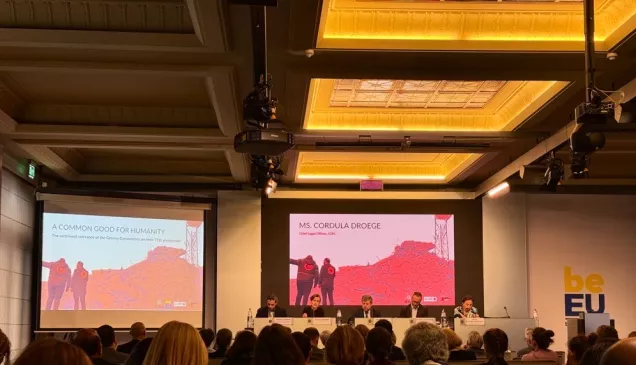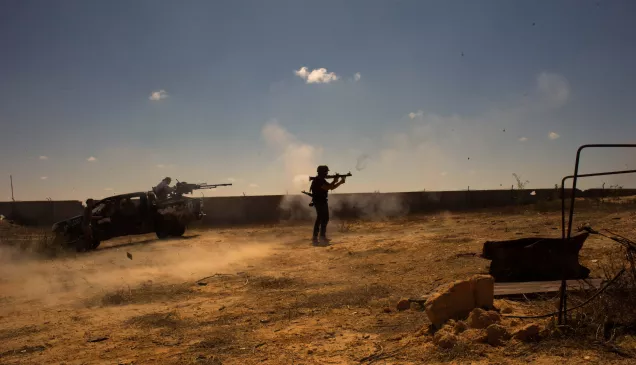“State of emergency declarations are not a free pass to circumvent the law.”

ICRC President's address to the Human Rights Council.
President, esteemed colleagues
A year ago, when this Council met, the COVID-19 pandemic was unfolding across the globe. Leaders proclaimed 'we are in this together' as the virus appeared to be affecting everyone, without discrimination.
Today we know the truth: despite the rhetoric of solidarity, the pandemic has accelerated inequalities. Those least able to cope, those already marginalised and disadvantaged are the most impacted.
In conflict zones, too, the pandemic revealed the deep fragilities of communities already beset by violence and natural disasters, weak governance, poverty and inadequate health care.
States struggled to respond simultaneously to national priorities and for international cooperation. At times the result was global solidarity, other times we saw ruthless competition for PPE or vaccines.
The COVID19 pandemic is not the first nor will it be the last global threat that we face together.
Many of today's challenges are not confined to state borders: whether pandemics, climate change, misinformation.
We must change the reality where those already most vulnerable, with the least resources, bear the brunt of key global shocks.
We must change the reality where humanity and dignity are violated in contravention of our shared norms and legal frameworks.
In 2021, the international community must work to address against four key threats:
- One, nationalism at the expense of the most vulnerable: whether exclusionary policies on vaccine distribution or economic inequality.
- Two, the rollback of norms that protect life and dignity: whether through the misuse of force or surveillance to control populations. State of emergency declarations are not a free pass to circumvent the law.
- Three, unmitigated climate change will cause the number of people in need to grow exponentially, especially in fragile and conflict-affected contexts.
- Four, the misuse of information that fuels violence and amplifies humanitarian needs; or the abuse of personal data to curtail people's rights.
We call on States to take all steps, individually and collectively, to mitigate against the impacts of these threats and ensure those most at risk are actively protected.
International Humanitarian Law and International Human Rights Law provide fundamental standards for people's protection. They are vital tools for upholding life and dignity.
Respecting - and ensuring respect - for International Humanitarian Law in all circumstances would protect people from the worst impacts of war and reduce the impacts of global shocks, whether health, economic or environmental.
Whether enforcing exceptional measures in response to public health emergencies, during the conduct of hostilities or in situations of public unrest, responses must be guided by the utmost respect to protect communities.
Public order at gunpoint; detention without due process; politicisation of humanitarian aid: we have seen how draconian measures can erode trust between citizens and the state, creating further threats to safety and security.
Any use of force in law enforcement must conform to the principles of legality, necessity, proportionality, precaution and accountability. In maintaining public order, the use of firearms and other lethal force is an extreme measure of last resort.
Neutral, impartial, independent humanitarian action is a lifeline to communities in distress. It must be supported and allowed to operate without undue restrictions.
The International Committee of the Red Cross regularly provides States with practical advice on implementing their responsibilities, and balancing military imperatives with humanity and protection.
We are ready to engage with you - from dialogue with militaries on the conduct of hostilities, to guidance to law enforcement responses, and advice to States on their relationships in support of parties to conflict. We offer training, practical handbooks for commanders, advice on rules of engagement of armed forces, police and other security forces.
Dear colleagues, we must place people at the centre and design responses that respond to their needs and rights; not according to the logic of national and international bureaucracies; or the political objectives of States.
Constructive multilateral approaches are vital, especially to uphold existing laws, norms and principles.
But we cannot limit our imaginations to existing structures. To overcome chronic, and growing instability, we need new forms of multi-stakeholder approaches, whether to address climate change, guard against economic downturn and poverty or to tackle misinformation.
Global threats require global responses anchored in local needs and aspirations. People's rights and protection must remain at the heart of States' policies – without discrimination.
Thank you.
Contact: Clare Cameron, Office of the President ccameron@icrc.org



